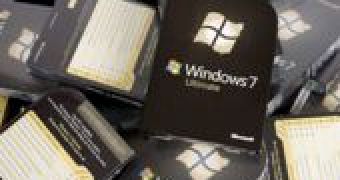A record $59 billion worth of software products were pirated worldwide in 2010 alone according to a recent report by the Business Software Alliance (BSA), $32 billion of which just in emerging economies. As software has become not only an essential part of mundane activities for users across the globe, but also a key business tool.
With National Small Business Week (May 15 through May 21, 2011) celebrating small businesses in the United States at the initiative of the White House, Microsoft is warning customers that they should not make the mistake of relying on pirated software for their business operations.
The software giant, a company vastly affected by the piracy phenomenon, compiled the “10 Tips to Safeguard Your Small Business” guide which you will be able to find included below.
Microsoft’s Senior Attorney Mary Jo Schrade notes that small businesses should “do a bit of research to help them make more informed decisions and negotiate better pricing; however, be wary of prices that seem too good to be true.
“Fraudsters have learned to target businesses with low prices, so the greatest deal is not always the best choice as it can result in the accidental purchase of pirated or counterfeit software. While it can sometimes be difficult to spot the fake from the real thing, there are ways to ensure protection from risks involved in buying fake software.”
Properly licensing software inevitably raises costs for any business. In this regard, small businesses might be exceptionally sensitive to increased investments, since their financial resources are often limited.
Still, although counterfeit software might appear as if delivering a cost advantage, it doesn’t, quite to the contrary in fact, it might end up costing customers even more than the original licensing would.
Small business users, but also additional customers need to be aware of the risks associated with running bootlegged software.
Pirated products can easily mean malware infections, identity theft and even system failure. Unlicensed software coming from untrusted sources, often from criminal organizations, has generally been tampered with.
Criminals deploy hacks and cracks, modify the code, and change the software in order to bypass the anti-piracy security measures built in. Such code modifications can easily make a product insecure, leaving the door open for infections.
In some cases, attackers even go as far as to distribute free copies of pirated software that has been already infected with malicious code, effectively using the bootlegged products to spread malware designed to steal credit card information and other sensitive data, to transform the victim’s PC into a zombie computer part of a botnet, etc.
Here’s some great advice from Microsoft to small business users when it comes down to avoiding purchasing pirated software.
1. Ask questions, take action. Ask for genuine Microsoft software. If you discover your software is non-genuine, contact the retailer or seller to seek redress and contact your credit card company to see if there is recourse.
2. Understand the forms of software piracy. Small businesses should avoid Websites that go by names such as “cheap software” that offer to sell Microsoft software via downloads, peer-to-peer network or other file-sharing sites technologies.
3. Buy from a trusted source. Before purchasing online, do your homework and even check the feedback section on a seller’s site to find comments based on previous transactions. You can also visit http://www.microsoft.com to purchase genuine Microsoft software and gain access to technical support.
4. Compare the price. Check the online seller’s prices against the estimated retail value of the software. If the price for software seems too good to be true, it probably is and should be avoided. Non-genuine software is likely loaded with malware and malicious code that could cost hundreds or thousands of dollars in the long term.
5. Check the label, package and discs. Be suspicious of software products that do not include proof of authenticity, such as a hologram CD, DVD, recovery media, manuals and Microsoft Software License Terms (MSLT). Genuine Microsoft software should appear primarily copper in color and the hologram has a wavy effect.
6. Be careful when shopping the globe. Be especially cautious when dealing with software sellers in other countries. The physical distance, differences in legal systems and other factors could complicate matters if the transaction goes awry.
7. Keep your anti-virus software up-to-date. This is your first line of defense and will reduce your computer’s risk of exposure to viruses and malware when downloading software. Microsoft offers free anti-virus programs for customers who use genuine software at http://www.microsoft.com/security_essentials.
8. Say no to backup software copies. Do not buy from sellers offering backup copies or bundles of several programs.
9. Arm yourself with information about software piracy. Check out Microsoft’s http://www.howtotell.com for more information and report software piracy.
10. Report piracy. Report counterfeiting by e-mail [email protected], online at http://www.howtotell.com or piracy hotline at 1-(800) RU-LEGIT.

 14 DAY TRIAL //
14 DAY TRIAL //